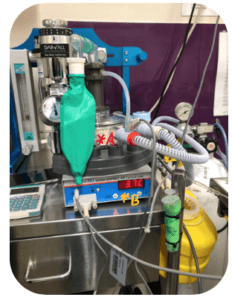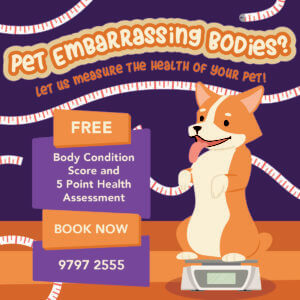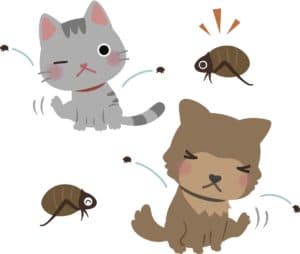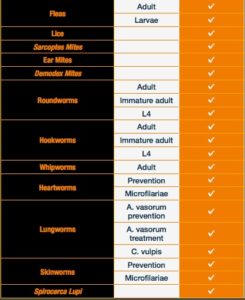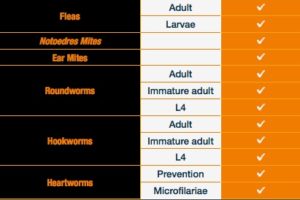Almost everyday we get phone calls from people who have found themselves in possession of a little stray kitten – or sometimes even a litter of stray kittens!
Unfortunately due to the number of stray cat colonies around Sydney there is always an abundance of homeless kittens. Despite the good intentions of the community to Trap-N-Release (TNR), this problem will not disappear anytime soon.
As such, we have made a guide to ensure the best outcome for the kittens.
Stray kitten(s) with a mother
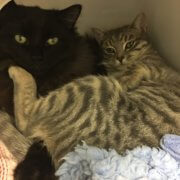
McShooty and Stevie were our ex-adoption kittens. They were strays who had a feral mother who is part of a community TnR & feeding program.
If you have encountered stray kittens that are still being attended to by their mother please make sure NOT to separate them! You should contact any reputable rescue group to organise a TNR. This allows the mother cat and her kittens to be taken off the streets for appropriate treatment. For the mother cat that usually means being desexed to prevent future stray litters. Depending on the nature of the cat and her kittens it is most likely the rescue group will attempt to re-home them however if the mother is extremely aggressive and hence unable to rehome then she will most likely be released back to where she is found once she is desexed and treated for any existing medical conditions.
Stray kitten(s) without any signs of a mother
Kittens that are alone are not necessarily without their mother- sometimes they can appear to be abandoned but in reality their mother is out gathering food or in the process of relocating her litter. To avoid making the mistake of separating a kitten from their mum, try to stick around (out of sight to avoid frightening them) and observe for a while to see if the mother does return.
If this is a case of no mother cat being present then you should aim to safely trap the stray kittens and bring them to their nearest vet*, the vet protocol from here on is to scan the kittens in case they have any microchips (if they are chipped then they would most likely have a home and are probably lost).
If the kittens are not microchipped and are clearly not a missing pet then it is up to the vet on what needs to be done next.
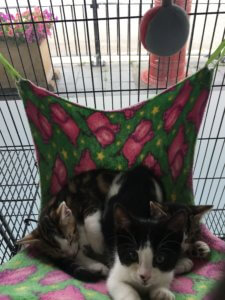
A litter of 3 ex-adoption kittens (Chandler, Ross and Joey) we had taken on from another clinic to rehome.
Vet clinics are not rescue groups, hence are not always able to hold-onto and rehome stray animals- this is because most smaller clinics only have the capacity and resources for hospital patients. Sometimes however, and this is the case for our clinic- the vet will have the availability to rehome the stray kittens in which case they will take them off your hands and handle all treatment and later adoption.
If the vet advises you that they are unable to keep the kittens you’re next best options are to either:
a) contact reputable rescue groups (there is a list of them and their contact details at the end of this post).
b) foster the kittens yourself and handle the rehoming (if you do decide to foster/keep the kittens you can read our Kitten Care handout for information on owning and caring for kittens) – if you do end up fostering the kittens you can talk to our staff about receiving discount rescue rates for all their treatment (that is only if you are not intending to keep them as your own pet and are definitely adopting them out)
c) contact other nearby vets- just because one vet does not have the space, that does not mean other clinics do not. We have previously taken on stray litters from other clinics who were unable to.
List of Cat Rescue Groups in Sydney:
